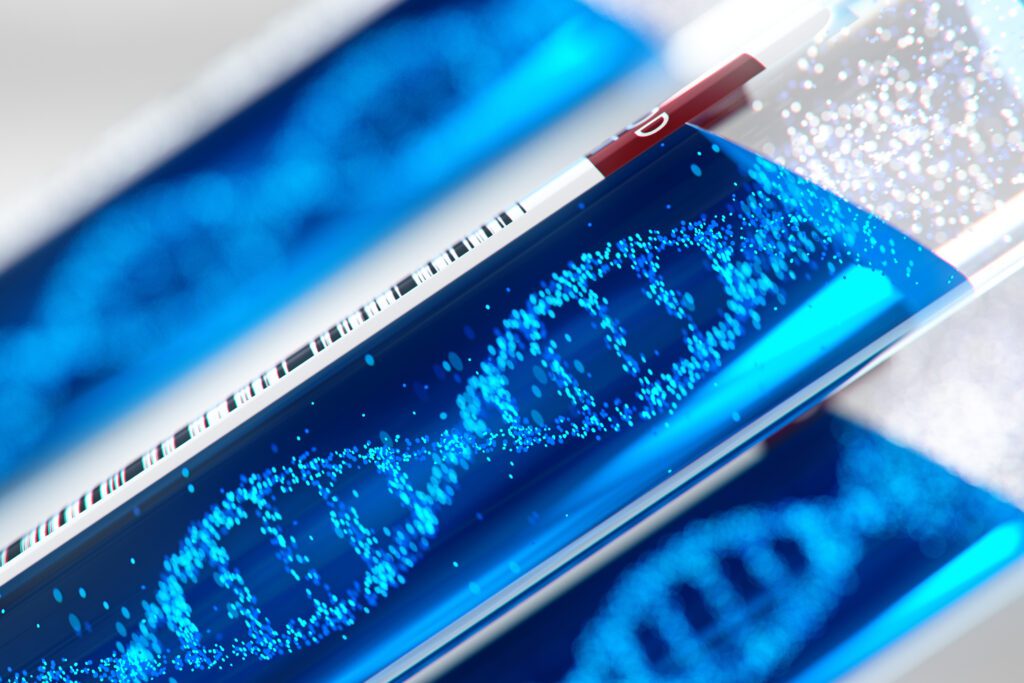
February 22, 2023
Member Companies Driving the Latest Innovations in Cell and Gene Therapy

Cell and gene therapies have been called “game-changing medicines” that have the potential to treat everything from cancer to rare disorders, and even common diseases. The concept of these advanced treatments—which target illnesses at its source at the molecular level by transferring genetic materials or live, healthy cells directly into the cells or the body—might sound futuristic, but it’s a facet of biotechnology that’s on the move today.
The global market for cell and gene therapies was valued at $18.6 billion in 2022, and roughly two dozen cellular and gene therapy products have been approved by the FDA to date. Earlier this year, the agency released its final guidance on early-phase cell and gene therapy clinical trials, and just this month, Peter Marks, director of the FDA’s Center for Biologics Evaluation and Research, said at a meeting of the Biopharma Congress he would like to see a “Project Orbis equivalent” for cell and gene therapy in the future—a program that could one day provide the framework for accelerated approval of these therapies and give patients quicker access to them. In this edition, we’re highlighting some of our member companies that are contributing to advancements in cell and gene therapies and are helping write the future of medicine.
Major Breakthrough
Bladder cancer is the sixth-most common type of cancer in the U.S., and non-muscle invasive bladder cancer makes up almost 75 percent of these cases. Some patients with an aggressive form of the disease are not responsive to Bacillus Calmette-Guerin (BCG) treatment, a type of immunotherapy for this type of cancer, and may have to have the bladder removed. Switzerland-based Ferring Pharmaceuticals developed a groundbreaking treatment that lends the body to create a protein to fight off cancer, possibly sparing patients from having to undergo this surgery.
Last December, the FDA approved Adstiladrin, a non-replicating adenoviral vector based gene therapy that is administered in the patient’s bladder once every three months, and is the first gene therapy approved by the agency for bladder cancer. The company says Adstiladrin is expected to be available in the U.S. in the second half of this year.
Totally Devoted
BlueRock Therapeutics, a wholly-owned subsidiary of Bayer Pharmaceuticals, specializes in cell and gene therapy and has been working on a new treatment for Parkinson’s disease, BRT-DA01, where nerve cells that produce dopamine are surgically transplanted in a patient to replace lost cells in the brain and help the organ create new ones. After surgery, the patient would need to take immunosuppressants for a year. The company completed enrollment in Phase 1 of its clinical trial last summer. BlueRock also recently opened a site on Bayer’s campus in Berlin, Germany, that is dedicated to making advancements in cell therapies, especially for treatments targeting neurological, immunological, cardiovascular and ophthalmic diseases.
Ending Autoimmune Disorders
Bay Area-based Sonoma Biotherapeutics specializes in developing novel therapies for autoimmune and inflammatory diseases using engineered regulatory T cells (Tregs), and is currently focused on chronic conditions such as rheumatoid arthritis and irritable bowel syndrome. Last summer, the FDA cleared the company’s Investigational New Drug (IND) application for a Phase 1 study of SBT115301, a biologic designed to eliminate highly activated effector T cells (Teff) that are dominant in autoimmune and inflammatory diseases.
Earlier this month, Sonoma Biotherapeutics was announced as one of five companies from around the world to sponsor a new initiative to develop an in vitro assay to evaluate the tumorigenicity of human-engineered T-cell therapies and replace in vivo studies involving mice. The initiative was launched by NC3Rs, a scientific research organization in the U.K. Novartis and Takeda are also sponsoring companies.
Rapid Growth
National Resilience Inc., a biomanufacturing company based in San Diego, was founded a little over two years ago but is already making advances in helping pharmaceutical companies with developing advanced medicine and cell and gene therapies. Earlier this month, it signed a 10 year-agreement for a biomanufacturing partnership with a leading pharmaceutical company for the potential manufacturing of biologics, vaccines, nucleic acids, and cell and gene therapy modalities. Last summer, the company received $625 million in Series D funding to expand its network, and became a biomanufacturing resource partner for the California Institute of Regenerative Medicine. It currently operates 11 sites across the U.S. and Canada.
‘Factory in a Box’ for Cell Therapies
While discovering and developing cell and gene therapies has its own set of challenges, manufacturing these therapies effectively presents an additional hurdle for the industry to overcome. John Tomtishen, vice president of operations at Cellares, outlined some of these challenges in a recent article for Genetic Engineering & Biotechnology News. Tomitshen says current production cannot keep up with the demand for cell therapies, and that “broad implementation of streamlined, automated manufacturing workflows is necessary” to ultimately get these treatments to patients.
Cellares, a Bay Area-based startup, is currently developing the Cell Shuttle, an automated “factory in a box” for manufacturing cell therapies on an industrial scale as a possible solution for the supply chain. The company says it has tested the Cell Shuttle with CAR-T therapy, and that it could be market-ready next year.